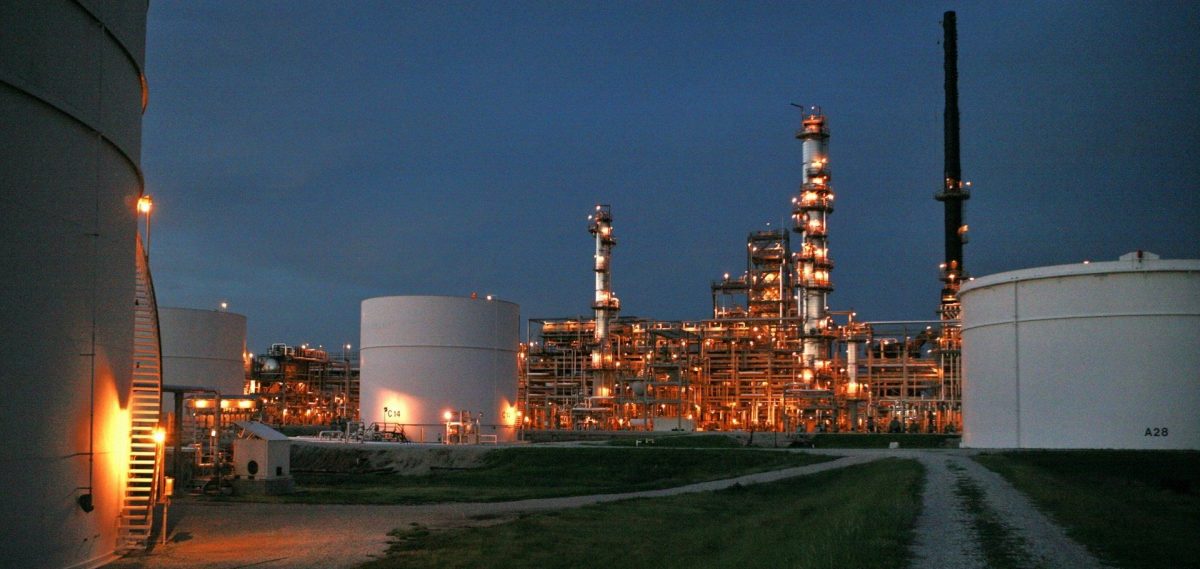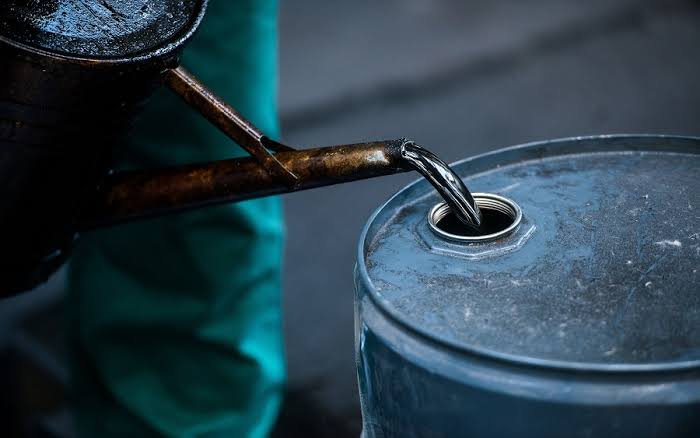AGO PORT HARCOURT DEPOTDEPOT PRICELIQUID BULK₦ 230.0SHORELINK₦ 230.0STOCKGAPNIPCO₦ 230.0SAHARA/BULK STRATEGIC₦ 230.0SIGMUND₦ 230.0PETROSPECTEVA₦ 230.0CALABAR DEPOTDEPOT PRICENORTHWEST₦ 230.0AMMASCOMAINLAND₦ 230.0SAMON PETFYNEFIELD₦ 230.0ALKANESYSG (YOUNG SHALL GROW)₦ 230.0BLOKKS FRADOHYDEAZMAN/NIPCO₦ 230.0UGO HANNAH WARRI DEPOTDEPOT PRICERAINOIL OGHARA₦ 221.0NEPAL OILPRUDENT OGHARA₦ 221.0MATRIX₦ 220.0KEONAMEXTAURUS₦ 221.0OTHNIEL BROOKSOPTIMAPINNACLEFRADROAYM SHAFALAGOS DEPOTDEPOT PRICEAFRICA TERMINALS₦ 220.0IBACHEM₦ 233.0IBETO₦ 233.0SAHARA₦ 230.0INT. OIL & GAS₦ 233.0BESTETERNAFOLAWIYOOBATRAHAMANIYYAINDEXNIPCOAITEO₦ 224.0ASCONFATGBEMSEMADEB ENERGY₦ 228.0A.A RANO₦ 228.0WOSBAB₦ 228.0MAOCHIPETEURAFRICBOVAS₦...
Bayelsa Oil, Gas Park Ready Q4 2022, Says Wabote
The Executive Secretary of the Nigerian Content Development and Monitoring Board (NCDMB), Mr. Simbi Wabote, has disclosed that the Nigerian Oil and Gas Park in Emeyal 1, Bayelsa State, would be completed in the fourth quarter of 2022.
Speaking after inspecting the construction work at the project site alongside senior management of the board, Wabote said his assessment visit was a prelude to the planned tour by the Minister of State for Petroleum Resources, Chief Timipre Sylva, to the board’s major projects.
A statement from the NCDMB stressed that the oil and gas park projects at Emeyal 1 and Odukpani in Cross River State and the Composite Gas Cylinder Manufacturing facility at Polaku are some of the projects to be visited.
Wabote expressed delight over the quality and speed of work by the wholly Nigerian contractors, noting that their work compared favourably with similar jobs across Nigeria and was evidence that NCDMB was always acting in accordance with its guidelines on patronage of local service companies.
The park is expected to create a low-cost manufacturing hub that will produce equipment components and spare parts to be utilised in the nation’s oil and gas industry when completed.
The board stated that the project started with a ground-breaking ceremony on April 27, 2018, and has now reached about 68 percent completion, with four major structures nearly completed, while foundation work was starting on some buildings and parts of the project.
“We did the ground-breaking ceremony in 2018 and we were practically inside water; but today, we are seeing structures coming up. We still have a long way to go because most of the buildings are getting to the finishing stages while some are just starting. We believe that we will complete this project by Q4, 2022,” the NCDMB boss said.
Explaining the benefit of the park scheme to the nation’s economy, Wabote hinted that the facility would stimulate the manufacturing of oil and gas components in-country and reverse the current trend whereby the sector depended on importation for most of its finished products.
He added that the park would also save the much-needed foreign exchange for the nation and create jobs for the Nigerian people.
“It will also enhance our capacity and bring about technological innovations because most of those manufacturing will be done here. For the community, it will create a lot of jobs and there will be a spin-off effect to other economic activities. The benefits are enormous,” he noted.
He also assured that shortage of electricity would not affect companies that would set up in the park.
“We have been able to conquer the challenge of electricity at this site. We have built a 10megawatts gas plant to guaranty power to the site,” he explained.
Wabote confirmed that Shell Petroleum Development Company (SPDC) was supporting the oil and gas project through a Capacity Development Initiative (CDI).
Shell’s commitment to the project, he stated, included the construction of effluent treatment plant, fire station and acquisition of two fire trucks and to construct a water treatment plant, sewage systems and piping network for water.
Read the original article on This Day.
Major Marketers Call for Initiative to Mitigate Effect of Petrol Price Hike
Marketers of petroleum products under the aegis of Major Oil Marketers Association of Nigeria (MOMAN) have called for a joint action of stakeholders in the Nigeria economy to find ways to mitigate adverse effects of the imminent increase in the price of petrol price.
The marketers’ cartel also canvassed for the replication of the current measure to cut cost of operation in the nation’s oil and gas industry to the entire spectrum of the economy especially governance.
The Chairman of MOMAN and Managing Director of 11Plc, Mr. Tunji Oyebanji, advanced the positions of the association in a statement he presented at a virtual press briefing hosted in Lagos, with the title, “After Deregulation, What Next”.
He said the removal of petrol subsidy and price control would no doubt lead to challenges for Nigerians, adding that debate among stakeholders should now move from the deregulation of downstream sector to fashioning out solutions to the hardship that would be faced by Nigerians.
He said with a fully deregulated downstream industry, the natural fear and anticipation of Nigerians was the increase in the price of transportation, food items and the attendant economic hardships.
According to Oyebanji, solutions to these challenges can only emanate from a collective resolve by all stakeholders to face up to these challenges together.
“We must as a nation debate and share pragmatic and realistic initiatives to mitigate the impact of a pump price increase which could follow a fully deregulated downstream,” he added.
He explained: “MOMAN is calling for a national discourse among all stakeholders including government, labour, civil society organisations, the organised private sector and operators, not on the merits or demerits of petrol subsidy removal, but on the initiatives that can be taken to ease the impact of the subsidy removal on the most vulnerable in our society.
“MOMAN remains committed to the sustainability and institutionalisation of a viable downstream petroleum industry for the social and economic growth of our Country, Nigeria”.
Oyebanji said the association stands with Nigeria and Nigerians through this difficult time and supports the federal government’s promise to pass the Petroleum Industry Bill (PIB) this year and fully deregulate the petroleum downstream sector.
He pointed out that the benefit of a liberalised downstream was the most visible means of growing the economy in the medium to long term.
He said Nigeria could become the refining hub of West and Central Africa and eventually the whole of Africa if it sticks to the path of investing in new refineries, adopting a cost optimisation initiative, building an environment that promotes competition and creates a sustainable petroleum sector.
“These actions would lead to increased employment, reduced poverty and reduced social inequity. We must take advantage of the opportunities brought by the African Continental Free Trade Area agreement (AfCFTA) and fully benefit from our barrels of crude, getting the maximum value it can bring Nigeria,” he noted.
Oyebanji, however, harped on the need for participants in the fuel supply chain, both operators and regulators demonstrate cost optimisation in every practical and public way possible.
He canvassed for the replication of the current measure to cut cost of operation in the nation’s oil and gas industry to the entire spectrum of the economy especially governance.
He added: “In line with the recently launched Nigerian Upstream Cost Optimisation Programme (NUCOP), efforts must be made to reduce costs of production, administration and governance throughout the petroleum value chain in the Nigerian petroleum sector, (particularly) the downstream, in order to promote efficiency and competitiveness within the industry and ensure value creation for all consumers.
“However, beyond this initiative being limited to the petroleum industry, we believe it is a notion that should be applied to the Nigerian landscape, particularly in the area of governance.
“As promised by the government, a visible and measured reduction in the cost of governance throughout the polity would bring about savings which can be directed toward improving the livelihood of the average Nigerian.
“This cost optimisation initiative would demonstrate to Nigerians the good faith of the decision makers in both the public and private sectors.”
Source: ThisDayLive
16-02-2021
AGO PORT HARCOURT DEPOTDEPOT PRICELIQUID BULK₦ 230.0SHORELINK₦ 230.0STOCKGAPNIPCO₦ 230.0SAHARA/BULK STRATEGIC₦ 230.0SIGMUND₦ 230.0PETROSPECTEVA₦ 230.0CALABAR DEPOTDEPOT PRICENORTHWEST₦ 230.0AMMASCOMAINLAND₦ 230.0SAMON PETFYNEFIELD₦ 230.0ALKANESYSG (YOUNG SHALL GROW)₦ 230.0BLOKKS FRADOHYDEAZMAN/NIPCO₦ 230.0UGO HANNAH WARRI DEPOTDEPOT PRICERAINOIL OGHARA₦ 221.0NEPAL OILPRUDENT OGHARA₦ 221.0MATRIX₦ 220.0KEONAMEXTAURUS₦ 221.0OTHNIEL BROOKSOPTIMAPINNACLEFRADROAYM SHAFALAGOS DEPOTDEPOT PRICEAFRICA TERMINALS₦ 220.0IBACHEM₦ 233.0IBETO₦ 233.0SAHARA₦ 230.0INT. OIL & GAS₦ 233.0BESTETERNAFOLAWIYOOBATRAHAMANIYYAINDEXNIPCOAITEO₦ 224.0ASCONFATGBEMSEMADEB ENERGY₦ 228.0A.A RANO₦ 228.0WOSBAB₦ 228.0MAOCHIPETEURAFRICBOVAS₦...
15-02-2021
AGO PORT HARCOURT DEPOTDEPOT PRICELIQUID BULK₦ 221.0SHORELINK₦ 221.0STOCKGAPNIPCO₦ 221.0SAHARA/BULK STRATEGIC₦ 221.0SIGMUND₦ 221.0PETROSPECTEVA₦ 221.0CALABAR DEPOTDEPOT PRICENORTHWEST₦ 221.0AMMASCOMAINLAND₦ 221.0SAMON PETFYNEFIELD₦ 221.0ALKANESYSG (YOUNG SHALL GROW)₦ 221.0BLOKKS FRADOHYDEAZMAN/NIPCO₦ 221.0UGO HANNAH WARRI DEPOTDEPOT PRICERAINOIL OGHARA₦ 221.0NEPAL OILPRUDENT OGHARA₦ 221.0MATRIX₦ 220.0KEONAMEXTAURUS₦ 221.0OTHNIEL BROOKSOPTIMAPINNACLEFRADROAYM SHAFALAGOS DEPOTDEPOT PRICEAFRICA TERMINALS₦ 220.0IBACHEM₦ 234.0IBETO₦ 234.0SAHARAINT. OIL & GAS₦ 233.0BESTETERNAFOLAWIYOOBATRAHAMANIYYAINDEXNIPCOAITEO₦ 224.0ASCONFATGBEMSEMADEB ENERGYA.A RANOWOSBAB₦ 230.0MAOCHIPETEURAFRICBOVASRAINOILMRST.TIMEOVHSAHARACONOILAZHONEYWELLGULFHEYDENFIRST ROYALAIPECMENJ₦ 234.0TECHNO DPK/ATK...
12-02-2021
AGO PORT HARCOURT DEPOTDEPOT PRICELIQUID BULK₦ 221.0SHORELINK₦ 221.0STOCKGAPNIPCO₦ 221.0SAHARA/BULK STRATEGIC₦ 221.0SIGMUND₦ 221.0PETROSPECTEVA₦ 221.0CALABAR DEPOTDEPOT PRICENORTHWEST₦ 221.0AMMASCOMAINLAND₦ 221.0SAMON PETFYNEFIELD₦ 221.0ALKANESYSG (YOUNG SHALL GROW)₦ 221.0BLOKKS FRADOHYDEAZMAN/NIPCO₦ 221.0UGO HANNAH WARRI DEPOTDEPOT PRICERAINOIL OGHARA₦ 221.0NEPAL OILPRUDENT OGHARA₦ 221.0MATRIX₦ 220.0KEONAMEXTAURUS₦ 221.0OTHNIEL BROOKSOPTIMAPINNACLEFRADROAYM SHAFALAGOS DEPOTDEPOT PRICEAFRICA TERMINALS₦ 220.0IBACHEM₦ 221.0IBETO₦ 221.0SAHARA₦ 217.0INT. OIL & GAS₦ 220.0BEST₦ 218.5ETERNAFOLAWIYOOBATRAHAMANIYYAINDEX₦ 217.0NIPCO₦ 219.0AITEO₦ 215.0ASCONFATGBEMS₦ 217.0EMADEB ENERGY₦...
11-02-2021
AGO PORT HARCOURT DEPOTDEPOT PRICELIQUID BULK₦ 221.0SHORELINK₦ 221.0STOCKGAPNIPCO₦ 221.0SAHARA/BULK STRATEGIC₦ 221.0SIGMUND₦ 221.0PETROSPECTEVA₦ 221.0CALABAR DEPOTDEPOT PRICENORTHWEST₦ 221.0AMMASCOMAINLAND₦ 221.0SAMON PETFYNEFIELD₦ 221.0ALKANESYSG (YOUNG SHALL GROW)₦ 221.0BLOKKS FRADOHYDEAZMAN/NIPCO₦ 221.0UGO HANNAH WARRI DEPOTDEPOT PRICERAINOIL OGHARA₦ 221.0NEPAL OILPRUDENT OGHARA₦ 221.0MATRIX₦ 220.0KEONAMEXTAURUS₦ 221.0OTHNIEL BROOKSOPTIMAPINNACLEFRADROAYM SHAFALAGOS DEPOTDEPOT PRICEAFRICA TERMINALS₦ 220.0IBACHEM₦ 221.0IBETO₦ 221.0SAHARA₦ 217.0INT. OIL & GAS₦ 220.0BEST₦ 218.5ETERNAFOLAWIYOOBATRAHAMANIYYAINDEX₦ 217.0NIPCO₦ 219.0AITEO₦ 215.0ASCONFATGBEMS₦ 217.0EMADEB ENERGY₦...
10-02-2021
AGO PORT HARCOURT DEPOTDEPOT PRICELIQUID BULK₦ 221.0SHORELINK₦ 221.0STOCKGAPNIPCO₦ 221.0SAHARA/BULK STRATEGIC₦ 221.0SIGMUND₦ 221.0PETROSPECTEVA₦ 221.0CALABAR DEPOTDEPOT PRICENORTHWEST₦ 221.0AMMASCOMAINLAND₦ 221.0SAMON PETFYNEFIELD₦ 221.0ALKANESYSG (YOUNG SHALL GROW)₦ 221.0BLOKKS FRADOHYDEAZMAN/NIPCO₦ 221.0UGO HANNAH WARRI DEPOTDEPOT PRICERAINOIL OGHARA₦ 221.0NEPAL OILPRUDENT OGHARA₦ 221.0MATRIX₦ 221.0KEONAMEXTAURUS₦ 221.0OTHNIEL BROOKSOPTIMAPINNACLEFRADROAYM SHAFALAGOS DEPOTDEPOT PRICEAFRICA TERMINALS₦ 220.0IBACHEM₦ 221.0IBETO₦ 221.0SAHARA₦ 217.0INT. OIL & GAS₦ 220.0BEST₦ 218.5ETERNAFOLAWIYOOBATRAHAMANIYYAINDEX₦ 217.0NIPCO₦ 219.0AITEO₦ 215.0ASCONFATGBEMS₦ 217.0EMADEB ENERGY₦...
09-02-2021
AGO PORT HARCOURT DEPOTDEPOT PRICELIQUID BULK₦ 221.0SHORELINK₦ 221.0STOCKGAPNIPCO₦ 221.0SAHARA/BULK STRATEGIC₦ 221.0SIGMUND₦ 221.0PETROSPECTEVA₦ 221.0CALABAR DEPOTDEPOT PRICENORTHWEST₦ 221.0AMMASCOMAINLAND₦ 221.0SAMON PETFYNEFIELD₦ 221.0ALKANESYSG (YOUNG SHALL GROW)₦ 221.0BLOKKS FRADOHYDEAZMAN/NIPCO₦ 221.0UGO HANNAH WARRI DEPOTDEPOT PRICERAINOIL OGHARA₦ 221.0NEPAL OILPRUDENT OGHARA₦ 221.0MATRIX₦ 221.0KEONAMEXTAURUS₦ 221.0OTHNIEL BROOKSOPTIMAPINNACLEFRADROAYM SHAFALAGOS DEPOTDEPOT PRICEAFRICA TERMINALS₦ 220.0IBACHEM₦ 218.0IBETO₦ 219.0SAHARA₦ 217.0INT. OIL & GAS₦ 220.0BEST₦ 218.5ETERNAFOLAWIYOOBATRAHAMANIYYAINDEX₦ 217.0NIPCO₦ 219.0AITEO₦ 215.0ASCONFATGBEMS₦ 217.0EMADEB ENERGY₦...
08-02-2021
AGO PORT HARCOURT DEPOTDEPOT PRICELIQUID BULK₦ 203.0SHORELINK₦ 203.0STOCKGAPNIPCO₦ 205.0SAHARA/BULK STRATEGIC₦ 205.0SIGMUND₦ 205.0PETROSPECTEVA₦ 205.0 CALABAR DEPOTDEPOT PRICENORTHWEST₦ 205.0AMMASCOMAINLAND₦ 200.0SAMON PETFYNEFIELD₦ 210.0ALKANESYSG (YOUNG SHALL GROW)₦ 203.0BLOKKS FRADOHYDEAZMAN/NIPCO₦ 205.0UGO HANNAH WARRI DEPOTDEPOT PRICERAINOIL OGHARA₦ 209.0NEPAL OILPRUDENT OGHARAN 207.0MATRIX₦ 205.0KEONAMEXTAURUS₦ 207.0OTHNIEL BROOKSOPTIMAPINNACLEFRADROAYM SHAFALAGOS DEPOTDEPOT PRICEAFRICA TERMINALSIBACHEM₦ 213.0IBETO₦ 213.0SAHARA₦ 214.0INT. OIL & GAS₦ 214.0BESTETERNAFOLAWIYOOBATRAHAMANIYYAINDEXNIPCO₦ 212.0AITEOASCONFATGBEMSEMADEB ENERGYA.A RANO₦ 209.0WOSBAB₦ 210.0MAOCHIPETEURAFRICBOVASRAINOILMRS₦ 210.0T.TIMEOVHSAHARACONOILAZHONEYWELLGULFHEYDENFIRST...

